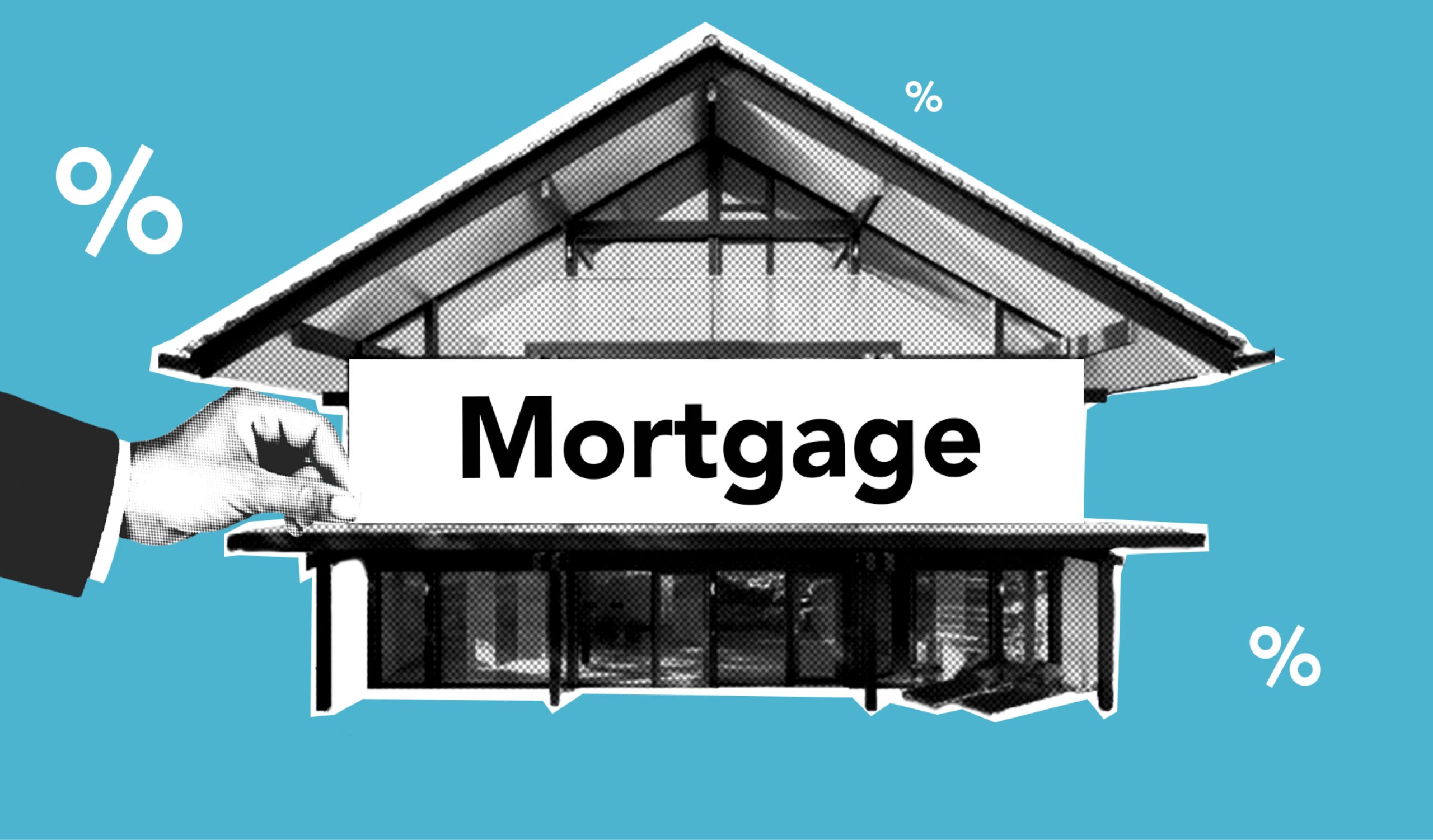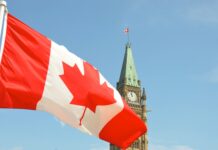Are you planning to buy a home in Canada? Buying a home is a big step, especially in a beautiful city like Ottawa. It’s a great place to call home because of its rich culture, history, job opportunities, and diverse neighborhoods. Whenever we think of buying a home first thing that comes to our mind is “Mortgage.” Whether you’re a first-time buyer, self-employed, or have experienced credit issues, finding the right mortgage can help you realize your homeownership dreams.
Having the right information and resources is essential for making the best choices for your needs and budget. To help you make an informed decision, we’ve created a comprehensive that will help you through the Ottawa home-buying process, covering everything from understanding the local real estate scene to working with an Ottawa mortgage broker to get the best interest rates and terms. Let’s get started!

Things to Consider Before Buying a Home
Are you considering purchasing a home? Consider the following questions before making a big decision:
- Am I financially stable?
- Do I have the skills and discipline to handle a large purchase?
- Am I prepared for all of the costs associated with home ownership?
- Can I commit to regular home maintenance?
- Am I a newcomer to Canada?
So, are you ready now to buy a home in Ottawa, Canada? Read on!
Costs of Buying a Home in Canada
Recently, real estate prices have been quite volatile. The national average reached a high of $816,720 in February 2022, but it dropped significantly in the following months, dipping by double-digit percentages due to higher interest rates affecting purchasing power. The national average had stabilized at $650,140 as of August 2023. This represents a 20% decrease, equal to -$166,580, from the peak during the pandemic in February of that year.
These fluctuations have posed challenges for many Canadians, mainly because real estate is frequently one of their most significant and crucial life investments. The rapidly rising cost of borrowing has put a strain on first-time home buyers in particular.
The Bank of Canada made a historic move by raising its trend-setting Overnight Lending Rate 10 times between March 2022 and July 2023, eventually reaching 5% from 0.25%. As a result, over the last year, buyers have been rushing to secure lower rates, get pre-approved, and close on their home purchases as soon as possible.
Step-by-Step Guide on Buying a House
Whether you’re buying a townhouse, a fully-detached house, or a condo, here’s a step-by-step approach to buying a house in Ottawa, Canada.
Step 1: Saving for a Down Payment
If you’re thinking about buying a house, getting a mortgage is usually an important step. When it comes to mortgages, you’ll be required to make a down payment, which is typically a percentage of the home’s purchase price. In Ottawa, most homes ask for a down payment of less than 20% but note that anything less than 20% requires you to pay for mortgage default insurance.
The standard down payment for homes over $1 million is typically at least 20% of the purchase price. For example, if you want to buy a $1 million home, you’ll need a down payment of at least $200,000. The minimum down payment for insured mortgages is 5% for homes under $500,000. The minimum down payment for a home between $500,000 and $1 million is 5% less than $500,000 and 10% greater than $500,000. If you’re looking to buy a single-family home in Ottawa, expect a $NaN down payment. Saving at least $NaN is required for condo buyers. You must have saved this amount to purchase a home in Ottawa with a mortgage.
What is Mortgage Loan Insurance?
Mortgage insurance, also known as mortgage default insurance or mortgage loan insurance, protects mortgage lenders if a borrower is unable to make their mortgage payments. It’s important to understand that this insurance protects the lender’s investment rather than the borrower.
In Canada, if your down payment is less than 20% of the home’s purchase price, you’re required to get mortgage loan insurance. Even with a 20% down payment, your lender may still ask for mortgage loan insurance as a precautionary measure, especially if you have a lower credit score or are self-employed.
What is a Mortgage Premium?
The expense associated with mortgage loan insurance is known as a premium. This premium is typically between 0.6% and 4.50% of the mortgage amount and is determined by the size of your down payment. In general, a higher down payment equals lower mortgage loan insurance premiums.
Mortgage loan insurance is available in Canada from several providers, including the Canada Guaranty Mortgage Insurance Company, Canada Mortgage and Housing Corporation (CMHC), and Sagen. You can choose to pay the premium as a lump sum or include it in your mortgage payment. If you choose the latter, you will be charged premium interest at the same rate as your mortgage interest.
Mortgage loan insurance premiums are subject to provincial sales tax in some provinces, including Manitoba, Ontario, and Quebec. Note that this tax cannot be added to your mortgage; you must pay it separately when you secure your mortgage.
Home Buying Programs, Plans, and Incentives for Home Buyers in Canada
In Canada, the government offers a variety of programs and incentives to help homebuyers with their purchase.
- Homebuyer amount: Eligible homebuyers may qualify for a non-refundable tax credit of up to $1,500.
- GST/HST new housing rebates: Buyers may be eligible for a tax credit on a portion of the taxes paid when purchasing a new home.
- Home Buyers’ Plan (HBP): First-time homebuyers can withdraw up to $35,000 tax-free from their registered retirement savings plan (RRSP) to buy their first home.
- First-Time Home Buyer Incentive: It provides eligible buyers with 5% or 10% of the home’s purchase price as down payment assistance.
- First Home Savings Account (FHSA): It allows people to save up to $40,000 tax-free for buying a home, with a yearly contribution limit of $8,000.
Step 2: Improving Your Credit Score and Income
When applying for a loan, make sure your financials are in top shape to secure the best mortgage rates. Lenders scrutinize your credit report, score, debts, income, and assets. Beyond a good credit score, having a high income, significant assets, and manageable debt boosts your creditworthiness. Lenders prefer borrowers who have a history of timely loan payments. You must have a credit score of at least 600 but exceeding 760 secures better mortgage rates. Lenders prefer a two-year job history for job stability.
For self-employed individuals, lenders require having at least two years of self-employment income. For the debt-to-income ratio, lower is better—lenders favor a Gross Debt Service (GDS) under 39% and a Total Debt Service (TDS) under 44%.
Step 3: Determine Your Mortgage Affordability
After understanding how to qualify for a mortgage, evaluate your affordability using Total Debt Service (TDS) and Gross Debt Service (GDS) ratios. When calculated at a specific mortgage rate, these ratios determine your eligible borrowing amount. Factors like higher income, lower debt, and a lower interest rate all increase your borrowing capacity. On the other hand, higher debt, higher interest rates, and lower income decrease it. Understanding your borrowing limits allows you to focus on homes that fit within your budget, ensuring that you explore properties that match your financial capabilities and make informed decisions about what you can afford.
Step 4: Find Your Ideal Neighborhood
From the bustling downtown to suburban and even rural areas, Ottawa has a wide range of neighborhoods. Working with an experienced real estate agent can help alleviate the stress of moving to a new city. They have extensive knowledge of different areas of Ottawa and can help you find a location that fits your budget and lifestyle.
Some popular areas include Barrhaven, Kanata, Wellington West, Westboro Village, Bank Street Promenade, Somerset-Chinatown, Sparks Street, Byward Market, Downtown Rideau, Heart of Orleans, and many others. Each area has its own distinct charm and offerings, so finding the one that matches your preferences is essential for a comfortable living.

Step 5: Plan for Closing Costs
Closing costs are the necessary expenses associated with buying a home, and they can quickly add up. From real estate lawyer fees to title insurance and other miscellaneous expenses, it’s necessary to estimate these costs upfront to avoid surprises.
The land transfer tax, which ranges from 0.5% to 2.5% of the home’s purchase price in Ottawa, is a significant component of closing costs. First-time home buyers might be eligible for a land transfer tax rebate. In Ontario, foreign buyers will be subject to an additional 25% Non-Resident Speculation Tax (NRST). Being aware of these potential costs allows you to budget more effectively and ensures a smoother home-buying process without any financial surprises.
Step 6: Selecting Mortgage Lender
After conducting personal research, it’s time to choose your mortgage lender. Generally, you have two choices:
Your Bank: Your bank is often the first option, especially if you already have financial services with them. They are usually ready to assist you with your mortgage needs and offer competitive rates. However, terms may have some restrictions, such as prepayment restrictions or considerations for future actions, such as bridge financing or refinancing.
Mortgage Broker: A Mortgage Broker provides access to a number of lenders with different levels of flexibility. Mortgage brokers are valuable because they can shop around for the best lender based on your specific needs. They can provide you with a curated list of lenders and, in some cases, additional discounts that traditional banks may not be able to match. Check that the mortgage broker is registered with the Financial Services Regulatory Authority of Ontario (FSRA).
If you’re looking for the best mortgage broker in Ottawa, look no further than Mortgages with Sue. They offer unbiased, transparent, and online mortgage services. They ensure the most competitive options with over 60 lenders, striving to save you money on pre-approvals, construction loans, refinancing, and more. Their platinum-level service consistently ranks them among the top 1% of mortgage brokers in Ottawa and throughout Canada.

Step 7: Get Mortgage Pre-Approval
If you’re looking for a new home, getting a mortgage pre-approval is a wise move. This document, provided by mortgage lenders, outlines the amount they are willing to lend you and the interest rate associated with it. A mortgage pre-approval helps you establish your budget, allowing you to focus on homes that are within your price range. Furthermore, it shows sellers that you are serious about purchasing their property.
A mortgage pre-approval allows you to lock in a favorable mortgage rate for a set period, typically up to 120 days. This rate hold allows you to look at potential homes confidently, knowing that your mortgage rate will remain constant and there will be no pressure to make hurried decisions.
Step 8: Find Your New Home
With everything in place, the exciting phase of finding your new home begins! Consider requesting in-person viewings in addition to browsing listings and virtual tours. Open houses are a great way to closely look over potential homes and get a sense of the neighborhood. You may also want your real estate agent to arrange home tours with the current owner, who can provide valuable information about the property.
Schedule home inspections to uncover hidden surprises and ensure you’re making an informed decision. Don’t let hidden issues get in the way of your dream home!
Step 9: Making Offers
Making an offer on a house can be intimidating. Deciding on an offer amount, negotiating terms, and deciding whether to include conditions can be tricky. Your real estate agent will help you in making a competitive offer, which may include adding contingencies for factors such as financing and inspection results. When a seller accepts your offer, the next step is to finalize the purchase and sale agreement.
Step 10: Closing Date
Closing day is the day when you officially become the owner of your new home. On this important day, you will complete the process by signing all necessary documents and paying the remaining costs related to the property purchase. Make sure that you have a clear plan, your financing is ready, and you are aware of any paperwork that requires your signature. Your real estate agent is available to answer any questions and guide you through the final steps of purchasing your home. When everything is in order, you will be given the key to your new Ottawa home!

Tips for First-time Home Buyers in Ottawa
Here are some quick tips for first-time homebuyers:
- While a 5% down payment is the minimum requirement, saving up to 20% can help you avoid default insurance. If you only have 5%, don’t worry; you can still make your dream home a reality without waiting.
- Lenders want to know where your down payment comes from. If it’s a gift, a letter from the benefactor confirming this is required. Lenders usually prefer gifts from immediate family members.
- Take advantage of incentives designed for first-time buyers to maximize your savings.
- Lenders consider various factors like your monthly income, annual income, down payment, credit history, existing debts, and assets.
- Explore different mortgage types, such as open mortgages (more flexibility) and closed mortgages (less flexibility but with prepayment penalties).
- Understand fixed and variable interest rates. Fixed rates remain constant throughout the term, while variable rates may change based on market conditions.
- Consider extra expenses like land transfer taxes, property tax adjustments, home inspections, legal fees, or mandatory default insurance if your down payment is less than 20%.
- If you face challenges with standard lenders, know that there are alternative options. Private lenders, like Mortgage with Sue, might offer more flexibility compared to traditional banks, especially for those with less-than-perfect credit.
The Bottom Line
I hope this guide has swept away your worries about buying a new home in Ottawa, Canada. In Ottawa, securing the right mortgage is within your reach, no matter your unique situation. Whether you’re a first-time buyer, self-employed, or have experienced credit challenges, understanding your options and working with experienced professionals will set you on the path to homeownership. So, what are you waiting for? Book your consultation at Mortgages with Sue. If you have any questions or need further guidance, don’t hesitate to ask. Your dream home in Ottawa might be just around the corner!
FAQs
Should I choose a bank or a mortgage broker in Ottawa?
Choosing between a bank and a mortgage broker depends on your preferences. While banks offer familiarity, mortgage brokers provide a broader range of options and flexibility tailored to your unique situation.
What credit score do I need to qualify for a mortgage in Ottawa?
To qualify for a mortgage in Ottawa, a credit score of at least 600 is generally advisable, but aiming for an excellent score above 760 is even better. A higher credit score can lead to better mortgage rates.
What Happens If I Break My Mortgage Agreement?
If you break your contract, it’s a common situation, and you’ll be responsible for paying a penalty. The penalty amount varies and is calculated differently by each mortgage company or bank. If you need clarification on your specific agreement, feel free to reach out for assistance!
What if I have a low credit score?
A low credit score may impact your mortgage terms. Some lenders might approve your mortgage for a lower amount or at a higher interest rate. It’s essential to address any credit issues before applying for a mortgage.








